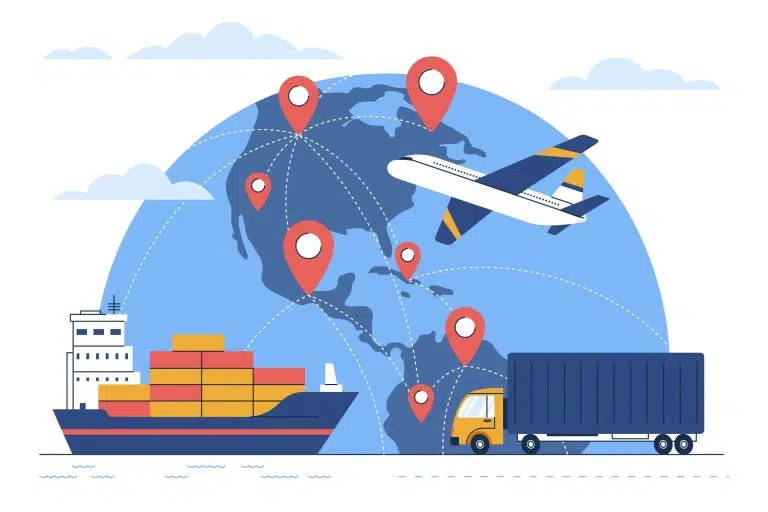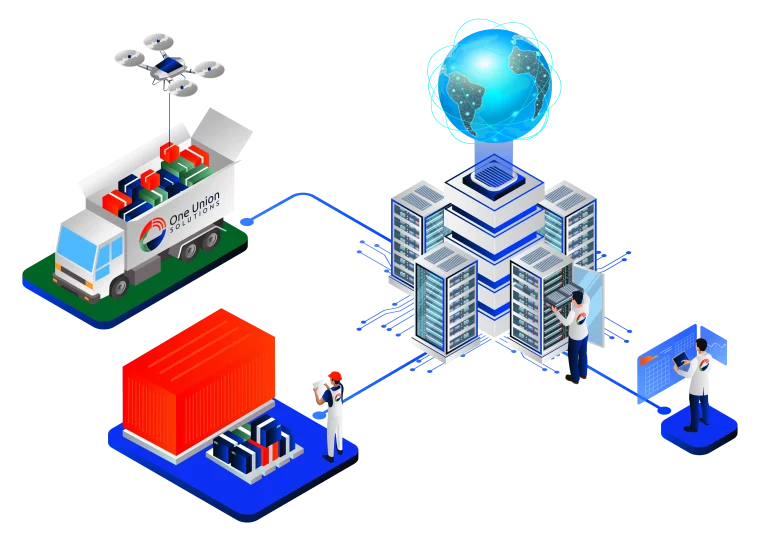Key Crossing Points:
Senegal shares its borders with three countries namely Mali, Mauritania and Guinea which borders it. These borders are crucially important for the landward import and export of both goods and services, mostly for trade with our neighboring countries.
Border Facilities:
Some border posts are quite large and may be developed to handle the heavy flow of cargo, with customs and immigration facilities designed to handle the bureaucracies of overland trading. Periodical progress and cooperation deals with neighbor states that will improve cargo transportation by land.
Importer of Record in Senegal: Roles and Responsibilities
The Importer of Record (IOR) is the key facilitator for the importation process in Senegal and works on meeting all the rules and regulations relating to legal, regulatory, and financial matters by the local laws. Evaluation and grasping the huge scope of the IOR functions is essential for the effective working of the organization and the rules and regulations it is set to follow.
Customs Compliance
- Regulatory Framework:
- The Importer of Record must ensure that all the necessary customs rules and regulations are in good order during the clearing process. Such directives work towards limiting the inflows and outflows of goods in and out of the country, as well as to protect vital national interests and ensure public safety.
- Adherence to this legal regime calls for proper awareness and taking into account the import laws concerning prohibited and restricted items as well as the laws (agreements) governing the importation of goods from partner states.
- Documentation Requirements:
- Essential Documents: IOR is tasked with presenting the certificates that detail the information for customs clearance. Generally, a formal invoice, packing list, bill of lading, or air bill as well as the import licenses or certificates for certain categories of goods are all within the scope of the statement.
- Accuracy and Completeness: To avoid stuff like delayed shipments, fines, or seizures, a fuller picture should be provided in the documentation. There is a need to highlight the importance of correctly designating goods under the Harmonized System codes so that the redemption of taxes payable can be determined.
Financial Responsibilities
-
Duty and Tax Assessment:
- Calculation of Duties and Taxes: The IOR will have to calculate those duties properly and pay the right taxes into the financial system. A customs unit of Senegal uses this value, HS code classification, and prevailing duties for these calculations when calculating the amount payable by the importer.
- Timely Payment: The fact that these are financial obligations must be met on time to allow the usual release of goods from customs and to avoid more storage costs or penalties.
-
Fiscal Representation:
- Non-resident companies importing into Senegal usually must engage a local fiscal representative. This individual, who acts on behalf of the foreign entity, manages tax-related issues such as VAT payments and refunds.
- Role of the Fiscal Representative: The mandated finance representative will closely monitor and follow all tax obligations in Senegal ensuring that the foreign company abides with local tax rules and statutes.
Challenges and Considerations for Importers in Senegal
Importing products into Senegal has a unique dimension and therefore requires well-thought-out planning and proper management, especially in the field of logistics and legal compliance. The transportation system inside Senegal can be the most significant barrier to internal distribution, especially due to the bad road conditions outside major urban areas such as Dakar. Effective logistics management comprises fine-tuned routes that take into account traffic patterns and the location of warehousing facilities for smooth transport from ports and airports to final points. Furthermore, importers are often faced with a daunting bureaucratic system. This involves dealing with customs processes and administrative procedures that may be time-consuming and encounter delays. It is imperative to have legal representation because local legal experts can assist in navigating the regulatory environments and ensuring compliance, resolving disputes, and handle any legal matters arising during import. Through anticipating them and overcoming them, enterprises can have better efficiency, lower costs and be successful in the Senegalese market.
Here’s how One Union Solutions can help you in Senegal:
One Union Solutions offers importer of record service with compliance and low cost in Senegal. We are ready to manage the import process from beginning to end for your IT and Telecom equipment. We offer you confidence, convenience, and no-stress importing. The services we provide are for diverse industries including Tech, Medical, Auto, and Aviation. Trust us to do all the paperwork and logistics involved that would make the importing process in Senegal smooth and hassle-free.
Hassle-Free IOR Services for Your Imports to Senegal
One Union Solutions offers Importer of Record (IOR) services to organizations with a business interest in importing goods into Senegal. We handle all the paperwork, verify compliance, and oversee the processes to avoid any settlements or penalty issues. We provide a global presence in over 170 countries and reliable time-critical services, allowing you to be rest assured that your imports are processed on your desired schedule.
As our Importer of Record in Senegal, we can relieve you of having to establish your entity in the country and solely rely on our expertise.
Your Trusted Partner for Exporter of Record Services in Senegal
One Union Solutions can be your IT and Technology Importer of Record and Export of Record in Senegal, you can forget about the stressful international shipping process. We supply tracking in real-time as well as visibility of the progress of your exports. To ensure a seamless export process, we guarantee adherence to Senegalese import regulations. Let us be your reliable partner to get over the difficulties of international trade in Senegal by using Trust One Union Solutions.


